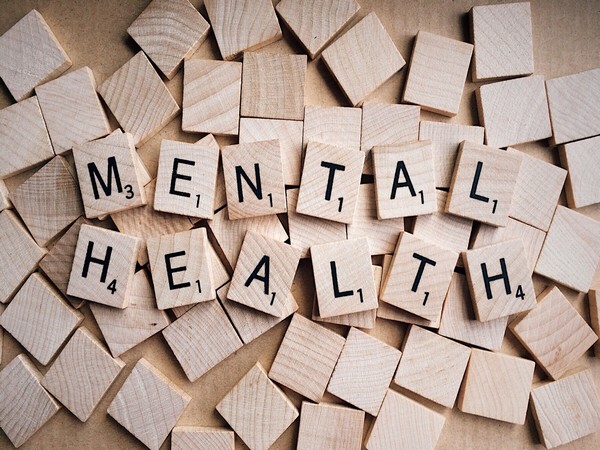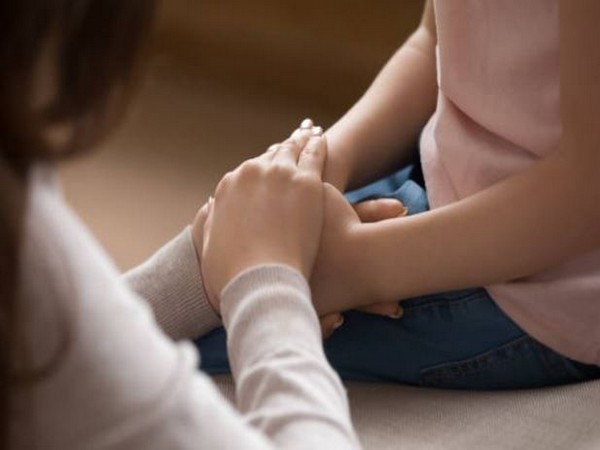

Recent studies among Syrian refugee families in Turkey and families with infants in Sweden and Bhutan have suggested that children of mothers in poor mental health have the risk of lacking in their cognitive development.
However, very small changes may be sufficient to break this correlation.
Having plenty of people around them and an available community are two of the most important factors for helping children, in all three countries.
The findings of the study were published in the journal ‘Developmental Science’.
“If you improve the mental health of mothers by four percent, the child wins an entire year in their cognitive development, in statistical terms. Small measures, in other words, can make a big difference in supporting the next generation,” said Gustaf Gredeback, Professor of Developmental Psychology at Uppsala University and Director of the Uppsala Child and Baby Lab, which led the studies.
The research was done through interviews and experimental studies onsite in Bhutan, Turkey, and Sweden. In Sweden and Bhutan, 120 families with 9-10 month-old infants participated. In Turkey, 100 families who had fled from Aleppo in Syria participated in the study. They have children between the ages of 6 and 18.
In Sweden, families with small children were the primary participants in the research conducted by Uppsala Child and Baby Lab. In Bhutan, the material was collected in collaboration with the Faculty of Nursing and Public Health and Khesar Gyalpo University of Medical Sciences of Bhutan. In Turkey, the studies were done with the help of researchers from the Department of Peace and Conflict Research at Uppsala University.
A common finding for the families in all three countries was that several of the children’s cognitive abilities were impacted by the mental health of their mothers, regardless of whether they were a refugee family in Syria or the family was in a safe environment in Sweden. The child’s intelligence did not seem to have been affected; rather, it was the child’s attentiveness, social understanding and ability to make decisions that were adversely affected.
Individual conditions around the mother can make the situation worse. The impact on the child is greater if the mother has a low level of education, has low social support, feels discriminated against, and has fallen in social status.
However, there are also clear initiatives that society can take to improve the mother’s situation and well-being, and in this way reduce the impact on the child: receiving support from her partner, having a large family or a large social network, and that society rallies around and supports the mother.
“All the cultures have aspects that are positive. In Sweden, we have our individualistic environments. We have more gender equality, for example, being able to share parental leave can be a form of relief. At the same time, we have few natural meeting places for relatives and social situations, something that is much stronger in the groups in the other countries,” Gredeback said.
“In Bhutan, an active religious life helps quite a bit. There is a strong connection to religion, and many people participate in religious gatherings several times a week. This gives them routines for regular meetings with others and widespread social support,” Gredeback added.
It is important to note that all the described correlations are statistical, i.e., based on observations between different parts of the studies. The researchers have not yet studied the causality of the correlations by improving the mothers’ mental health in at-risk settings and measuring the effects on the children’s development. That will be the next step after the current correlation studies.
“It inspires hope that apparently only small improvements are needed for the child to revive. In Sweden, we have to work hard to break the isolation, particularly for single mothers. We do not have any social glue. Many lack strong ties to their relatives and have no extended family to share the burden,” Gredeback said
“We lack continuity in religious rites and do not have many natural contexts to connect to. If we can create more of these opportunities, we can help turn the tide in the cognitive development of many children and offer them better lives,” Gredeback concluded.

A recent study has found that having plenty of people around them and an available community is two of the most important factors for helping children of mothers with depression.
The findings of the study were published in the journal ‘Developmental Science‘.
New studies among Syrian refugee families in Turkey and families with infants in Sweden and Bhutan have found that children of mothers in poor mental health risk falling behind in their cognitive development.
However, very small changes may be sufficient to break this correlation.
Having plenty of people around them and an available community are two of the most important factors for helping children, in all three countries.
“If you improve the mental health of mothers by four percent, the child wins an entire year in their cognitive development, in statistical terms. Small measures, in other words, can make a big difference in supporting the next generation,” said Gustaf Gredeback, Professor of Developmental Psychology at Uppsala University and Director of the Uppsala Child and Baby Lab, which led the studies.
The research was done through interviews and experimental studies onsite in Bhutan, Turkey, and Sweden. In Sweden and Bhutan, 120 families with 9-10 month-old infants participated. In Turkey, 100 families who had fled from Aleppo in Syria participated in the study. They have children between the ages of 6 and 18.
In Sweden, families with small children were the primary participants in the research conducted by Uppsala Child and Baby Lab. In Bhutan, the material was collected in collaboration with the Faculty of Nursing and Public Health and Khesar Gyalpo University of Medical Sciences of Bhutan. In Turkey, the studies were done with the help of researchers from the Department of Peace and Conflict Research at Uppsala University.
A common finding for the families in all three countries was that several of the children’s cognitive abilities were impacted by the mental health of their mothers, regardless of whether they were a refugee family in Syria or the family was in a safe environment in Sweden. The child’s intelligence did not seem to have been affected; rather, it was the child’s attentiveness, social understanding, and ability to make decisions that were adversely affected.
Individual conditions around the mother can make the situation worse. The impact on the child is greater if the mother has a low level of education, has low social support, feels discriminated against, and has fallen in social status.
However, there are also clear initiatives that society can take to improve the mother’s situation and well-being, and in this way reduce the impact on the child: receiving support from her partner, having a large family or a large social network, and that society rallies around and supports the mother.
“All the cultures have aspects that are positive. In Sweden, we have our individualistic environments. We have more gender equality, for example, being able to share parental leave can be a form of relief. At the same time, we have few natural meeting places for relatives and social situations, something that is much stronger in the groups in the other countries,” Gredeback said.
“In Bhutan, an active religious life helps quite a bit. There is a strong connection to religion, and many people participate in religious gatherings several times a week. This gives them routines for regular meetings with others and widespread social support,” Gredeback added.
It is important to note that all the described correlations are statistical, i.e., based on observations between different parts of the studies. The researchers have not yet studied the causality of the correlations by improving the mothers’ mental health in at-risk settings and measuring the effects on the children’s development. That will be the next step after the current correlation studies.
“It inspires hope that apparently only small improvements are needed for the child to revive. In Sweden, we have to work hard to break the isolation, particularly for single mothers. We do not have any social glue. Many lack strong ties to their relatives and have no extended family to share the burden,” Gredeback said.
“We lack continuity in religious rites and do not have many natural contexts to connect to. If we can create more of these opportunities, we can help turn the tide in the cognitive development of many children and offer them better lives,” Gredeback concluded.